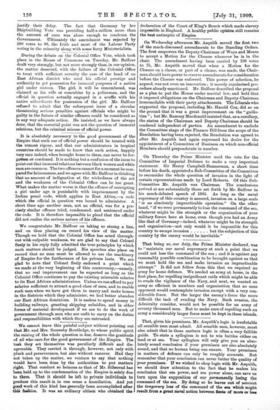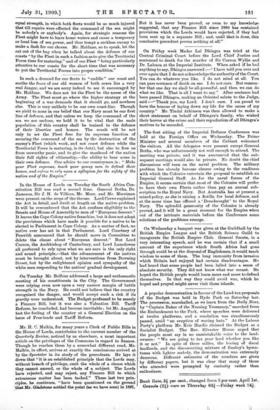That, given his premisses, Mr. Asquith's logic is irrefutable all
sensible men must admit. All sensible men, however, must also admit that in these matters logic is often a very fallible guide. To state a syllogism is not to win battles either on land or at sea. Your syllogism will only give you an abso- lutely sound conclusion if your premisses are also absolutely sound, and that no human being can ensure. Your premisses in matters of defence can only be roughly accurate. But remember that your conclusion can never betteithe quality of your premisses. If we wished to chop logic with Mr. Asquith, we should draw attention to the fact that he makes his conclusion that sea power, and sea *power alone, can save us turn upon the supposition of our permanently losing the command of the sea. By doing so he leaves out of account the temporary loss of the command of the sea which might iesult from a great naval action between fleets of more or lees
equal strength, in which both fleets would be so much injured that till repairs were effected the command of the sea might be nobody's or anybody's. Again, for strategic reasons the Fleet might have to leave home waters and cause a temporary or local loss of sea power, and thus tempt a reckless enemy to make a dash for our shores. Mr. Haldane, so to speak, let the cat out of the bag when he talked about the defence of our coasts " by the Fleet in such a fashion as to give the Territorial Force time for maturing," and of our Fleet " being particularly attentive to our coasts for the short time that was necessary to put the Territorial Forces into proper condition."







































 Previous page
Previous page